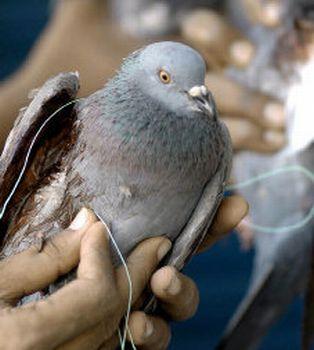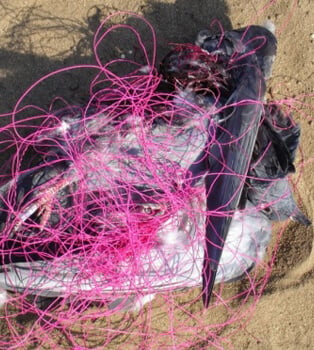Maharashtra Government Prohibits Use of Glass-Coated Cotton and All Other Forms of Manja Following PETA India Appeal
Following an appeal from PETA India to address bird and human deaths caused by manja, the Maharashtra Environment and Climate Change Department has issued a notification under Section 5 of the Environment (Protection) Act, 1986, requiring that “only a cotton thread, free from any sharp metal or glass or components or adhesives or thread strengthening material, shall be allowed, for kite flying”. The prohibition on the glass-coated cotton string and other deadly manja has been issued in order to prevent harm to humans, birds, and other animals as well as the environment. Per the notification, “[T]here shall be prohibition on the sale, production, storage, supply and use of nylon, synthetic or any other such thread coated with finely crushed glass, metal, or any other sharp objects, including threads commonly known as Chinese Manja or Chinese Dor, in the State of Maharashtra”.
The notification underlines the polluting nature of manja and the harm to human and animal life caused by its use. It cites the power failures that sharp manja causes, which affect up to 10,000 people from just one power line disruption. Such threads are also often ingested by cows and other animals, leading to life-threatening conditions. Notifications with similar directions have previously been issued by the governments of Chandigarh, Delhi, Himachal Pradesh, Telangana, and Tripura.
Manja, in all its forms, puts humans, birds, other animals, and the environment at risk. Razor-sharp strings, often reinforced with glass powder and metal, cause human injuries and many senseless deaths every year. Recently, in Mumbai, an 8-year-old boy died after manja slit his throat while he was enjoying the scenery from the sunroof of a car. Also in Mumbai, a motorcyclist – despite wearing a balaclava, a helmet with a visor, and gloves – was unable to escape injury when manja coated with powdered glass flew across his visor. In Pune, two policemen were injured by stray manja. In Nagpur, a 5-year-old girl received 26 stitches on her throat after kite string strengthened by adhesive and powdered glass left a deep gash on her neck. In Nagpur, a 7-year-old boy had a narrow escape after he put his head out of the sunroof of his family’s car and got entangled in stray manja, suffering serious neck and eye injuries.
The harmful thread also has a disastrous impact on bird populations. Birds’ wings are often slashed or even cut off by manja. Their feet have also been cut off by these strings, and wounded birds frequently escape, meaning rescuers can’t help them, and many bleed slowly and painfully to death.









